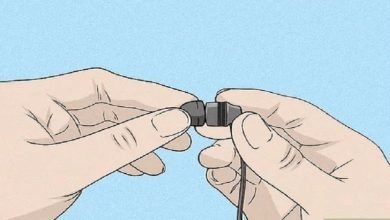
Determine the Quality of Sunglasses by Considering These Factors
With spring and summer right around the corner in Australia, it is time for everyone to equip themselves with a good pair of sunglasses. Summers in Australia can go up to 30°C (86 °F) with the sun scorching across the land. Polarised sunglasses make it easy and comfortable for people to head outside on sunny days, as they provide the necessary protection. Without the protection of UV filters, and sunscreen the harsh rays of the sun can have damaging effects on one’s eyes and skin and increase the risk of developing diseases.
What is Polarisation?
Polarised sunglasses contain a filter that only allows vertically oriented light rays to pass through the lens and block the horizontal UV rays. Therefore, they reduce the glare, enhance the contrast of the visuals, and improve their comfort and clarity. Although they are not essential to block all the UV rays travelling from the sun, they provide added protection to the eyes. The filtering allows people to perform tasks like driving and engaging in outdoor activities.
Factors to Consider While Buying Good-quality Sunglasses
Finding a suitable pair of sunglasses among all the options available in the market to protect a person can be a daunting task. Being aware of the factors one must consider to determine their quality becomes pertinent. High-quality polarised sunglasses have these qualities.
A UV Protection Label
Trusted brands provide the best eye protection through their sunglasses. And they indicate this through their labels such as 100% UV protection or UV 400 filter. The sunglasses with UV 400 filter block all the light rays entering the lenses up to 400-nanometre wavelengths. One must always buy sunglasses that can block 99 to 100% of the UV rays. It is, therefore, the utmost important factor to consider while buying sunglasses to protect the eyes. One can also test the quality by passing a UV flashlight through the lenses.
They Have an Optimal Dark Shade
People have the misconception that darker sunglasses protect the eyes better. But, in reality, the darkness of the lenses doesn’t necessarily block UV rays or protect the eyes. That is done by the UV filter, as mentioned above. The darkness of the sunglasses only filters out the glare and the ambient light. Darker sunglasses make the pupils open to let more sunlight in. In such cases, not having a UV filter will result in the eyes being exposed to extra UV rays, increasing the chances of developing macular degeneration and cataract. A good pair of sunglasses must screen out 75 to 90 per cent of the visible light and 100 per cent of the UV light.
A Relatively Longer Expiration Date
Sunglasses also have expiration dates. The general expiration period of sunglasses is around 2 to 3 years. But why do they expire? When the UV filters in the sunglasses are exposed for a long time, the coating on the lens gets damaged, and they no longer stay effective. To ensure maximum protection to the eyes and buy sunglasses that justify value for money, one must check the expiration date.
High Lens Quality
According to the reports published by the Australian Radiation Protection and Nuclear Safety Agency (ARPANSA), people must buy sunglasses that adhere to the mandatory safety standards for fashion spectacles and sunglasses in Australia. They must be certified with the AS/NZS 1067:2016 Eye and face protection: Sunglasses and fashion spectacles which sets the limit to allow the amount of visible and UVR light transmitted through the lenses in sunglasses for both children and adults.



